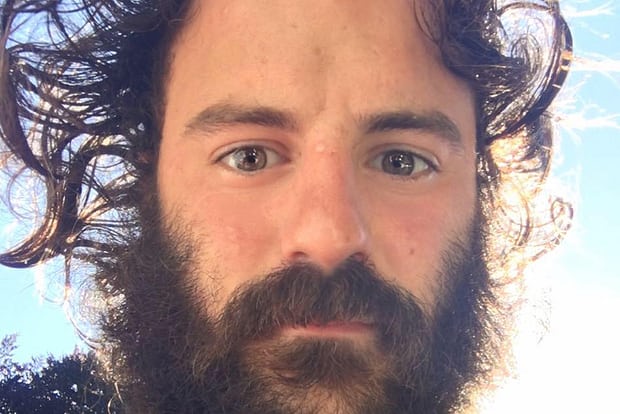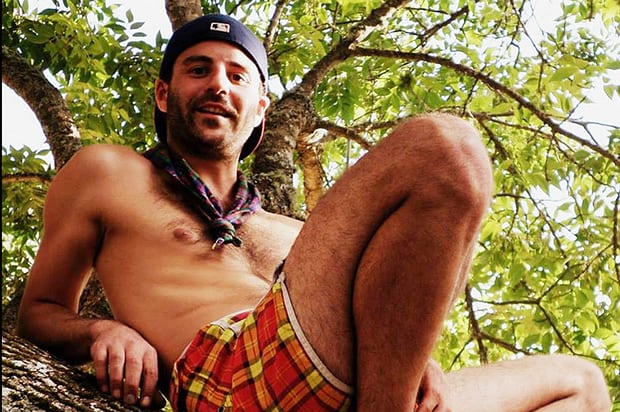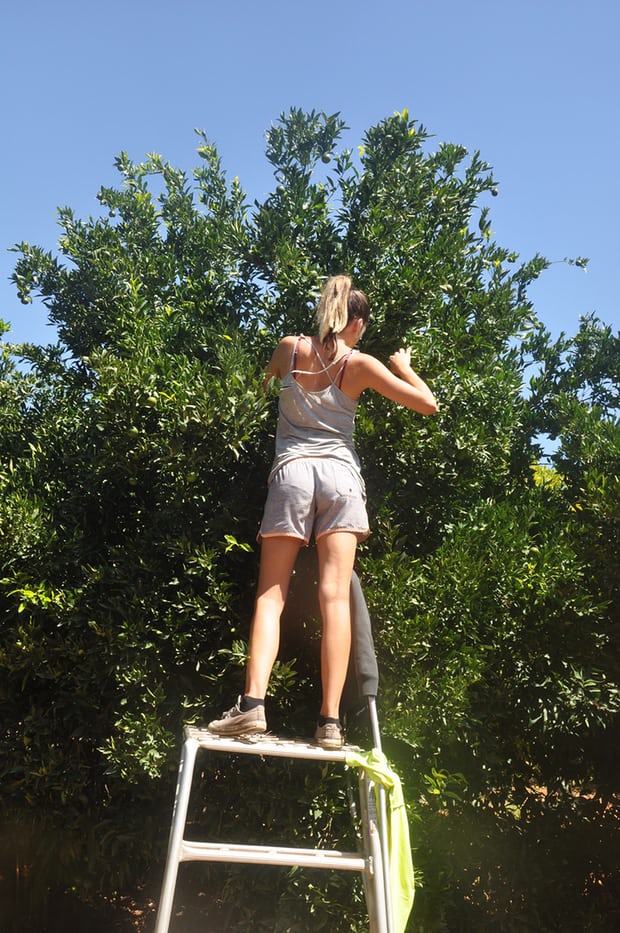Anne Davies
@annefdavies
Mon 21 May 2018 01.48 BST
Hand, a British traveller, had been picking pumpkins on a farm near Ayr, a small country town 10km (6 miles) from the coast, along with other young backpackers including a 27-year-old Belgian, Olivier “Max” Caramin.
The day was hot – the temperature had reached 35C – and the field where they were working was in a bowl; very humid with no breeze. Nor was there any shade on the trailer that was used to take the boxes of picked pumpkins to the shed.
“It was really hard to cool down,” Hand says. “We told [Max] to get into the shade of the trailer, but then I seen Max run past me. His complexion was completely different to when I last saw him, his eyes were crosseyed and he was running like newborn deer, with his arms and legs all wobbling.
“I said what the fuck’s going on? I knew it was serious.”
“It was clear,” says Hand, “that Max was in a very bad way.”
Hand recalls that Caramin had already said he could not go on picking, despite earning the ire of the farmer earlier in the day for not working fast enough. The crew had also told the farmer they wanted to stop picking at seven trailers but, according to Hand, the farmer insisted they pick an eighth – their normal quota.
Caramin died in Townsville hospital hours after collapsing on that day last November. The coroner is awaiting a final report from Workplace Health and Safety Queensland before deciding whether the matter should proceed to inquest.
The Belgian had been on the farm for just three days, undertaking farm work required by the Australian government if young foreigners wish to extend their working holiday visa by a year.
Because the backpackers’ top priority is to get their paperwork signed, they are likely to put up with illegal wages
Shane Roulstone, Australian Workers' Union
Designed to provide seasonal workers for farmers, the 88-day rule requires that backpackers spend their time in regional areas in specific jobs such as fruit picking and packing, trimming vines, working in tree farming, or working in mining or construction.
While most backpackers say that they love visiting Australia and that working on a farm added to their experience, Caramin’s death adds to a growing list of troubles experienced by young backpackers in rural Australia: rapes, sexual harassment, substandard living conditions, breaches of workplace safety laws and financial exploitation.
In rural towns, poor treatment of backpackers and exploitation are an open secret, as the Guardian discovered during a trip along the Murray river with a British student, Katherine Stoner. After her own experiences as an 18-year-old she returned to make a documentary about the 88 days policy.
Most Australians are unaware that cheap and plentiful fruit and vegetables are in part the result of a state-sanctioned arrangement that forces young backpackers into often exploitative conditions to undertake rural work in the harsh Australian climate.
Routine underpayment, crowding backpackers into rundown houses and pubs with an inadequate number of bathrooms and sexual harassment are common. The Australian Workers’ Union, which covers fruit pickers and farm labourers, says the incentives inherent in the scheme make backpackers extremely vulnerable.
The fact that they are on remote farms as fill-in workers means there is little reason for farmers to train them, says the union’s national organiser, Shane Roulstone.
“And, because the backpackers’ top priority is to get their paperwork signed, they are likely to put up with illegal wages and poor conditions,” he says. That pressure increases if the backpacker has left it to the end of their first-year visa to venture into the country.
Stoner and the Guardian travelled to Mildura, a town of 30,000 people on the Murray in western Victoria, just shy of the South Australian border. A green oasis of fruit-growing in the dry Australian outback thanks to the river, it’s a magnet for backpackers trying to complete their 88 days of farm work. It’s also one of the hottest regions in Australia, with maximum temperatures reaching into the 40s.
This dual role as provider of accommodation and work for backpackers is convenient at one level but makes the backpackers very vulnerable, as they are dependent on one person for a roof over their head and a job.
“There are contractors and owners of properties that have a very bad reputation,” Milne says. “Our own council has been involved trying to take every action they possibly can, and we continue to do that.”
The Guardian has tracked one operator, who is named repeatedly on websites, to a small town outside Mildura. He has been operating another hostel in an old hotel that has seen better days. Residents say it is run down but there is plenty of work. Inside we can see several sets of bunk beds to a room.
Milne says part of the problem is that the business of hiring and accommodating backpackers involves multiple jurisdictions and laws.
“You can look at a situation and know it’s wrong. But which law, who enforces it? And the time taken by the system, that’s what really makes it difficult.
“You have to notify an inspection and they just move people out and it’s the right amount of beds and it’s tidy. But you know they are up the road ready to move back in again.
“But there are people jamming 20 people into a house, and milking the money out of the kids and doing the wrong thing. There is a bit of work to be done.”
FOR FULL STORY PLEASE CLICK THE LINK BELOW:
amp.theguardian.com/australia-news/2018/may/21/death-in-the-sun-australias-88-day-law-leaves-backpackers-exploited-and-exposed




 RSS Feed
RSS Feed